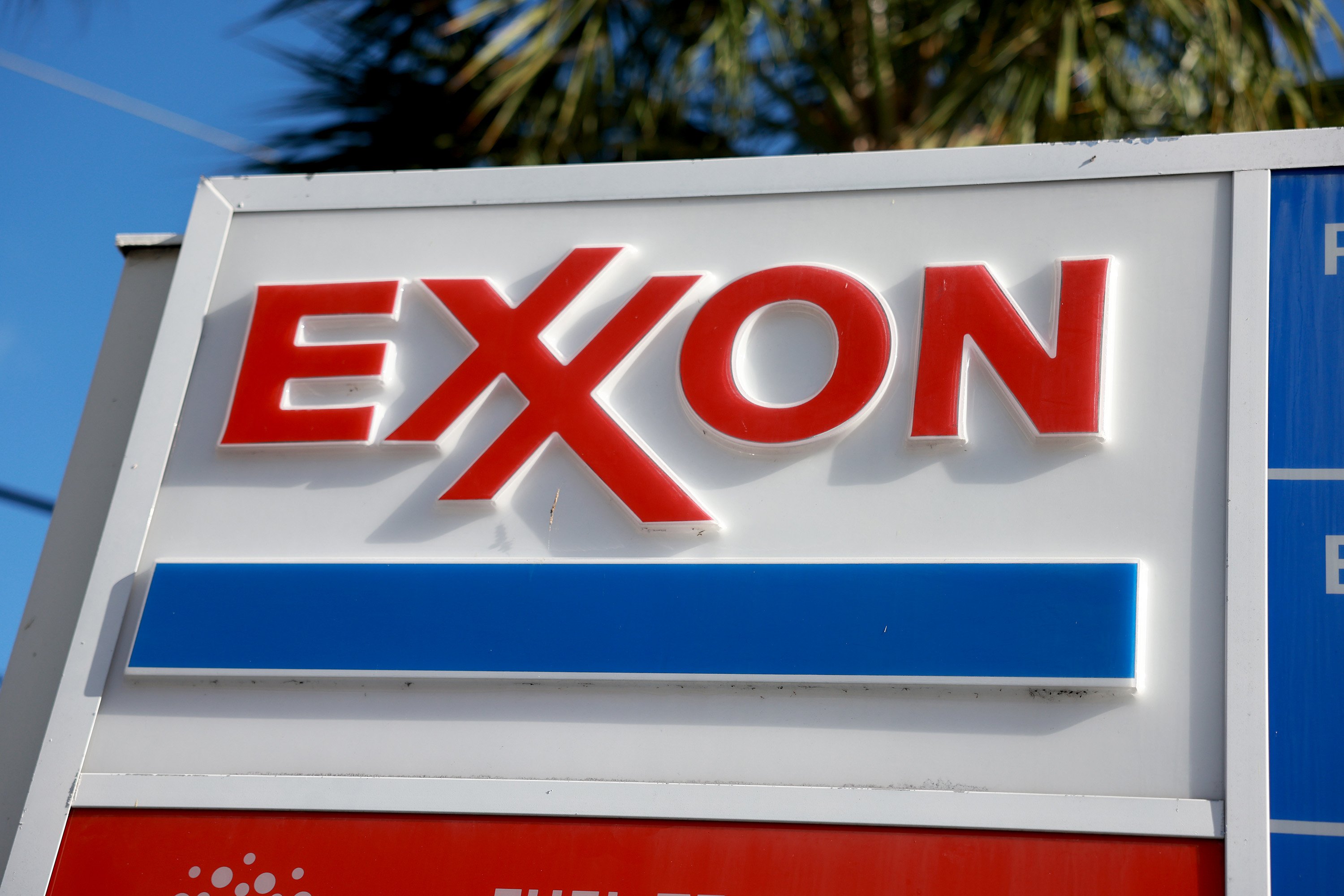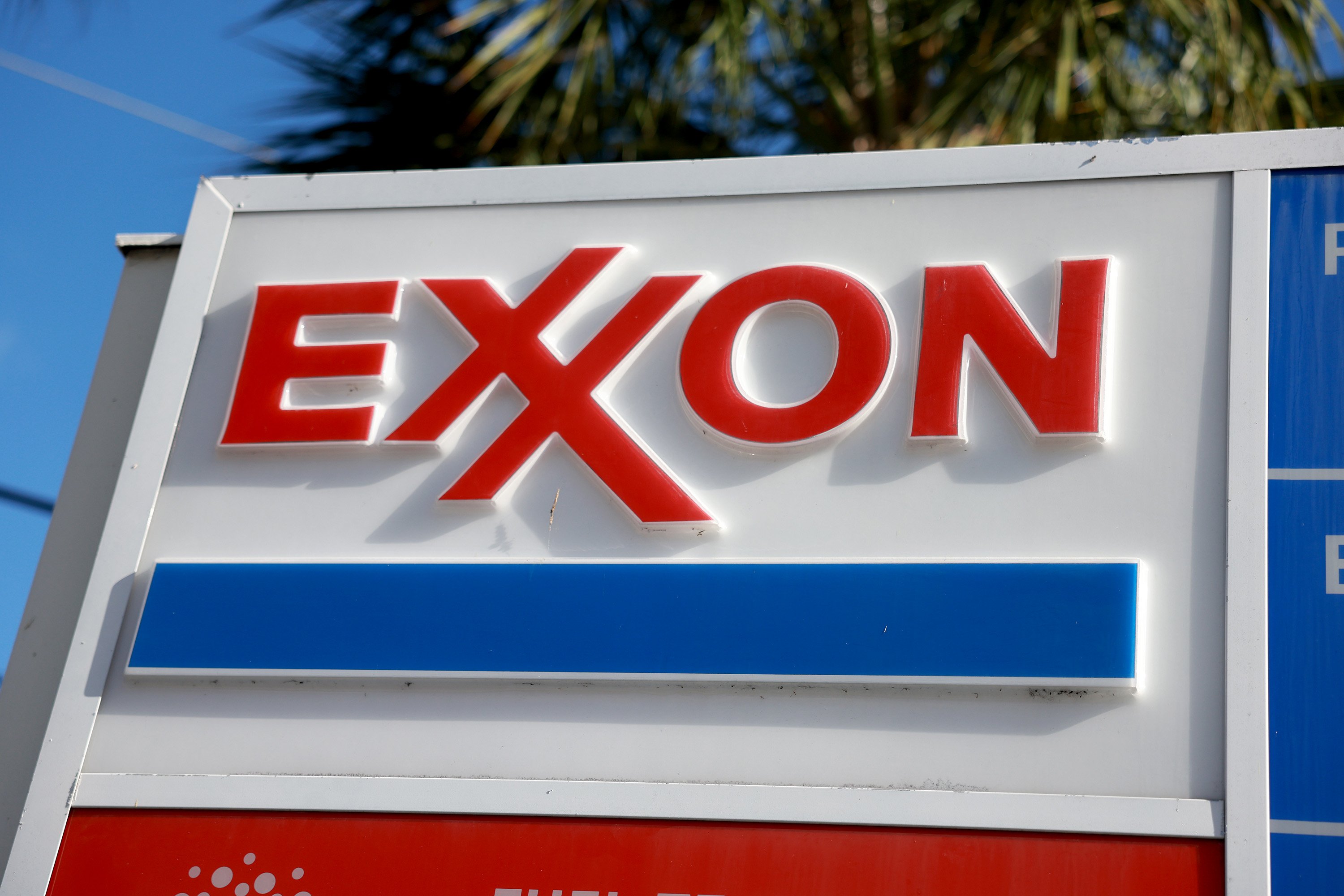Times are tough all over the stock market these days, but the oil industry is possibly the hardest hit of them all. Tumbling prices and oversupply have hit oil stocks hard, including Big Oil superstar ExxonMobil (XOM +0.55%). Shares of the oil major have crashed more than 50% over the last five years.
With shares trading at levels not seen since 2004, it's worth checking to see if ExxonMobil is a smart buy, or a sucker's bet.

Image source: Getty Images.
In the short term
The short-term outlook for ExxonMobil isn't good, but that's true of a lot of stocks right now. Coronavirus has upended the world's economy, and it's going to take time for things to get back to normal -- or to settle into a "new normal."
For oil and gas companies like ExxonMobil, the biggest issue is plain old supply and demand. With flights grounded and commuters on lockdown, crude oil supply has vastly outstripped the demand for fuel and refined products. That's a situation that's not going to change overnight: with a coronavirus vaccine nowhere near ready and even effective treatments for COVID-19 remaining elusive, people aren't just going to jump right onto planes once restrictions are lifted.
Worse, recent production cuts agreed to by the world's oil producing nations haven't gone far enough to address the demand shortage. 9.7 million barrels per day (b/d) of production sounds like a lot to cut, but demand in April has fallen by an estimated 29 million b/d from last year. All that excess crude has been filling up available storage capacity, to the point that there are now dozens of oil tankers anchored offshore, full of oil that has nowhere to go.
It could take months -- or even years -- for this supply glut to work its way through the system, which is likely to keep oil prices at rock bottom. With that in mind, neither ExxonMobil nor any other oil producer looks like a particularly good buy right now.
A long-term loser
Looking at the long term, there's an argument to be made that ExxonMobil is well-positioned for success, thanks largely to its size and status, which put it in a good position to weather a short-term oil price slump. But there are also some warning signs.
CEO Darren Woods started 2020 hoping to spend aggressively to boost production. However, he ended up following the lead of fellow oil majors and cutting his initial capital spending projections by 30%. Even so, ExxonMobil is still poised to outspend its Big Oil peers with a total 2020 capital budget of $23 billion, beating Royal Dutch Shell's $20 billion and handily topping Chevron's $14 billion and BP's $12 billion.
The company has generally been conservatively managed, but it nearly doubled its debt load to more than $44 billion to make it through the last oil price downturn (2014-2017). It will likely have to take on more debt to make it through this downturn. That might not sit well with investors who liked the company's former emphasis on maintaining a strong financial position.
While that conservative style may have done wonders for the balance sheet, it hasn't done a whole lot for the stock. In the 15 years between January 1, 2005 and January 1, 2020, shares of ExxonMobil only appreciated by 36.1%. Factoring in reinvested dividends gives us a better performance of 107.5%:
As you can see, though, that still lags behind the S&P 500's 166.6% return during that time. It even lags other dividend-paying stalwarts like Procter & Gamble (up 126.8%, not including dividends).
The dividend equation
Dividend investors, though, might still want to give ExxonMobil a look. Thanks to the company's recent share price declines, its dividend is now yielding 7.9%. A dividend aristocrat, ExxonMobil has been increasing its dividend annually for the last 37 years, so it has an incentive to keep those payments (and payment increases) coming.
Investors might be unnerved by fellow oil major Shell's decision to slash its dividend by 66%. However, none of the other four majors took such an extreme step. Meanwhile, ExxonMobil still has some additional levers it can pull, including offering scrip dividends (paying dividends in additional shares instead of cash).
For now, ExxonMobil's dividend looks secure, although depending on how long the coronavirus pandemic drags on, that could change. The same could be said, of course, for most dividend-paying companies.
Is it worth the risk?
ExxonMobil is a riskier company than it was only a few short years ago, and it's also a chronic market underperformer. CEO Woods is trying to spend the company out of its slump, but only time will tell if that's a winning strategy. Meanwhile, the oil industry is a disaster, ExxonMobil's balance sheet isn't as pristine as it once was, and the stock price is way down.
Unless you're a dividend investor who doesn't mind some risk, ExxonMobil doesn't look like a particularly good buy right now. However, the company's current high yield, beaten-down price, and its apparent unwillingness to sacrifice its dividend aristocrat status could end up being a winning combination in the long run for dividend investors who buy in now. But expect a rocky road. ExxonMobil is not the slam dunk it once seemed to be.









